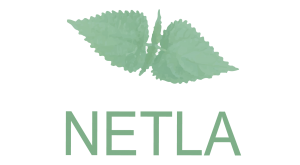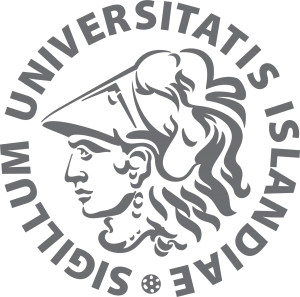Diversity in Education: Teachers and Learners
Netla – Veftímarit um uppeldi og menntun
Sérrit 2014 – Diversity in Education: Teachers and Learners | Birt 31.12.2014
Menntavísindasvið Háskóla ÍslandsAlþjóðlegt sérrit um margbreytileika í menntun
Netla – Veftímarit um uppeldi og menntun: Sérrit 2014 – Diversity in Education: Teachers and Learners er gefið út á vegum Menntavísindasviðs Háskóla Íslands, eins og önnur rit Netlu en að þessu sinni í samvinnu við Diverse Teachers for Diverse Learners eða DTDL, rannsóknarnet og verkefni fræðimanna frá Bretlandi, Finnlandi, Íslandi, Kanada og Noregi. Ritið sprettur af ráðstefnu sem haldin var í Glasgow vorið 2014. Ritstjórn leiddi Samúel Lefever (Íslandi), en auk hans sátu í ritstjórninni Antoinette Gagne (Kanada), Ghazala Bhatti (Bretlandi), Heidi Layne (Finnlandi) og Kirsten Lauritsen (Noregi). Robert Berman og Torfi Hjartarson, tveir af þremur ritstjórum Netlu, ásamt Kristínu Erlu Harðardóttur, forstöðumanni Menntavísindastofunar Háskóla Íslands, önnuðust útgáfuna. Í ritinu eru sex ritrýndar greinar eftir tólf höfunda af ýmsu þjóðerni.
Netla – Online Journal on Pedagogy and Education
Special Issue 2014 – Diversity in Education: Teachers and Learners
University of Iceland – School of EducationAn international issue on diversity in education
Netla – Online Journal on Pedagogy and Education or simply Netla (e. Nettle) was founded in 2002 and is published by the School of Education at the University of Iceland. This particular issue, Special Issue 2014 – Diversity in Education: Teachers and Learners is published in cooperation with Diverse Teachers for Diverse Learners or DTDL, a research project and network of scholars in Britain, Canada, Finland, Iceland and Norway. The publication is a product of a conference held in Glasgow in the spring of 2014. An editioral board was led by Samuel Lefever (Iceland), and included Antoinette Gagne (Canada), Ghazala Bhatti (United Kingdom), Heidi Layne (Finland) og Kirsten Lauritsen (Norway). Robert Berman and Torfi Hjartarson, two of Netla´s editors, and Kristín Harðardóttir, director of the Educational Research Institute, managed the publication process. The issue features six peer reviewed articles by twelve authors of different nationalities.
Alan Benson
Where do you come from? How trainee teachers from outside the UK are recognised and develop an authoritative voice as teachers in London schools
Policy concerns about the structure of the teaching workforce to reflect the superdiverse nature of the pupil population in London, combined with teacher shortages specifically in mathematics, has resulted in a significant number of those training to be mathematics teachers on the Post Graduate Certificate of Education (PGCE) route having gained their first degree at universities outside the UK. It is common for such trainee teachers to perceive mathematics as an international language and therefore ignore the part that language plays in the both the learning of mathematics itself and more generally in the classroom, particularly in the recognition of their own difference. This paper explores how they, and teachers in their first year of teaching, are recognised as different by drawing on qualitative data in which they discuss their experiences of difference in London classrooms characterised, in the title of this article, by a question they are often asked: ‘Where are you from?’ I find that the institutional setting and history of individual schools, combined with features associated with language and mobility described by Jan Blommaert (2010) are initially associated with difficulties of maintaining a teacher identity in classrooms as a result of recognition and the power which can be assumed by pupils as native speakers. I go on to examine how trainees manage this by developing authoritative speech (Philips, 2004) to which pupils listen and I identify the strategies of fitting into local expectations and challenging them in order for teachers to find new identity positions for themselves and subsequent recognition by pupils.
Christine Forde and Jacqueline Morley
Developing pedagogies for diversity in Scottish education: The contribution of professional standards
This article explores the contribution of a set of professional standards developed in Scottish education by the General Teaching Council Scotland, (GTCS 2012) in building pedagogies for diversity. A key purpose of professional standards is to codify professional practice and so play an important role in the shaping of teaching. There is a danger that professional standards focus on narrowly defined behavioral competences and thus reinforce a technicist approach to the practice of teachers and leaders in school (Kennedy, 2005). However, professional standards can be used as developmental tools to enhance practice (Ingvarson, 2005). The article begins by setting out the context in which these professional standards were developed in Scottish education before exploring various approaches to teaching for diverse learners, such as inclusive pedagogies, pedagogies to challenge heteronormativity, gender-sensitive teaching and culturally responsive teaching. The article moves on to examine the construction of teaching in a specific set of professional standards in order to consider the possible contribution of standards to the development of pedagogies that support the learning of diverse groups of learners. The article ends with a discussion of the notion of intersectionality and how this might be used in professional learning to build repertoires of pedagogic practices for diversity.
Edina Krompàk
Hidden rules of language use: Ethnographic observation on the transition from kindergarten to primary school in Switzerland
Growing linguistic and cultural diversity among children with and without an immigrant background is common in the Swiss education system. The new superdiversity of societies (Creese & Blackledge, 2010) requires professional development of teaching staff concerning linguistic and cultural responsibility and social justice. The paper presents initial findings from the research project “Multilingualism and Mobility in the Transition from Kindergarten to Primary School in Switzerland” (MEMOS) of the University of Applied Sciences and Arts Northwestern Switzerland, a follow-up project to the international study “Heterogeneity and Literacy in the Transition from Elementary to Primary School” (HeLiE) of the University of Cologne (Panagiotopoulou & Graf, 2008). The research questions of these two projects concentrate on the day-to-day practices of teachers and the language practices of multilingual children with an immigrant background. The MEMOS project encompassed intensive participant observation and analyses of semi-structured interviews and documents in kindergarten and first grade school class over a period of two years. My research shows that multilingual children balance separate language worlds according to the social context. Further pertinent findings illustrate the dynamic change of language use and preferences. Moreover, these children perceive themselves as multilingual individuals and actively construct their linguistic and cultural identities.
Samúel Lefever, Robert Berman, Hafdís Guðjónsdóttir and Karen Rut Gísladóttir
Professional identities of teachers with an immigrant background
A growing number of teachers with immigrant backgrounds are teaching in Icelandic schools, each of whom brings different resources to the educational setting. This article discusses the findings of a narrative study of teachers with an immigrant background who teach in compulsory and upper secondary schools in Iceland. The purpose of the study was to explore the teachers’ stories in order to develop a better understanding of how they draw on their personal and cultural resources in their teaching and develop their professional identities. Six teachers were asked to reflect on opportunities and challenges they had faced in their teaching careers. Findings from the study draw attention to hurdles the teachers have met and successes they have experienced. The teachers confirmed the importance of being able to speak Icelandic in order to be accepted in society and in their profession. Learning the majority language had been challenging but they had all successfully crossed that barrier. Additionally, each of the teachers had found and used opportunities to expand their knowledge and develop professionally. The teachers believed that their diverse experiences and backgrounds had given them a broader knowledge base and helped them to become better teachers. They had also experienced freedom within the school context to shape their identities and teaching practices according to their beliefs, which contributed positively to their selfefficacy, professional identity and vision for teaching. The teachers were happy with their professional success and were very committed to the teaching profession. The study exemplifies the success of immigrant professionals in Iceland, demonstrating how support and encouragement from the close environment such as family and the workplace, and personal strengths contribute to the co-construction of professional identity.
Greta Marnitz, supervised by Geri Smyth
Creating a multilingual classroom environment for monolingual and multilingual children in Scotland
Extensive evidence suggests that many benefits arise from being bi- or multilingual. It is further suggested that monolingual children in the classroom may also benefit from this, as they can experience insight into other cultures. However, even though these are justified claims, there is little research in this area to prove the points made. The current ethnographic study aims to find out what impact a multilingual environment has on both mono- and multilingual children and how teachers are able to create such an environment with simple resources. Within the context of a Storyline and a short topic, a Scottish P5 class explored different cultures and languages, in many cases guided by their bilingual peers. The researcher worked with the children on this project and at the same time observed them throughout the day. The findings of the observations seem to support the claim that both mono- and multilingual children benefit from an environment that embraces different languages and enables the children to explore these. Overall, the children showed increasing interest in other languages and a more positive attitude towards other cultures. In addition to this, in some cases the bilingual children became more integrated in the class.
Julie E. McAdam and Jennifer Farrar
Narratives of change: Creating a community of inquiry using drama
This paper presents the Sustainable Glasgow 20141 Project ‘Narratives of Social Change: Supporting Sustainable Action through Creative Multiliteracies’, which brought together a team of teachers, educators and researchers working in the city of Glasgow to work collaboratively as a professional community of inquiry (PCI) to examine themes connected to migration and diversity. The paper focuses on the use of text-based drama engagement as a means of uncovering and establishing the key themes of inquiry to be explored collectively by communities of learners. The project was based on the potential of children’s literature to generate themes for critical exploration connected to global migration. By building such collaborative communities of inquiry between schools and universities, we suggest it may be possible to create more sustainable ways forward in terms of meeting the needs of Scotland’s diverse learners and teachers, and in producing new narratives that reflect the growing diversity of our classrooms. Used in this way, dramatic engagement could offer practitoners a crucial point of access into meaningful forms of social action.

 Háteigsvegur v/Stakkahlíð
Háteigsvegur v/Stakkahlíð